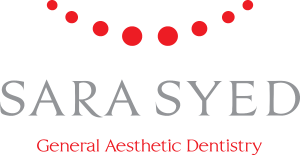What to Expect at your New Patient Exam
For many people, visiting the dentist can be an anxiety-inducing, or even scary experience, especially if you have had a bad experience in the past or if you’ve never been to the dentist before. Sometimes, simply understanding what will happen at your new patient exam is enough to ease those worries and inspire a positive and even enjoyable first trip to the dentist.
Step 1: Introductions
Your new patient exam will begin with a friendly and compassionate introduction to your dentist. This will allow you an opportunity to share any of your concerns, provide your dentist with information about your medical history and discuss medications that may be impacting your oral health.
Step 2: Radiographs and Photographs
Following introductions, your dentist will order any necessary radiographs (also known as x-rays) in order to be able to examine and assess areas not visible to the naked eye. Your dentist will recommend which areas to take x-rays of based on your specific needs.
You will be asked to bite down on the digital sensor support while the X-rays are taken. This may be uncomfortable for some, but rarely lasts more than 7-10 seconds. Since Dr. Syed’s office uses only digital x-ray technology, the x-rays are available immediately. Your dentist will review all of the findings with you after performing the full examination to ensure that you have a clear understanding of what is happening inside your mouth.
At Dr. Syed’s office, you will also have photographs taken to record the appearance of your teeth, face and smile. This will help you and the dentist to address any concerns about your smile, bite and tissue structure.
Step 3: Examination of your neck region
In addition to the examination inside of your mouth, your dentist will observe and examine the area outside and around your mouth. In order to completely understand your overall oral health, your dentist will look at the following:
- The state and functionality of your temporomandibular joint. This join connects your jaw to your skull and may be responsible for pain or tenderness in this region.
- The overall wellbeing and condition of the bones in your face, jaw and around your mouth.
Step 4: Visual Inspection of your mouth
Following the external examination, the dentist will visually inspect your mouth. The dentist will inform you of everything they are about to do and warn you if anything will feel uncomfortable or unusual. Using dental instruments such as a mirror, probe, and air spray (none of which will hurt!), your dentist will examine inside your mouth for the following:
- Damaged, missing or failing restorations
- Any signs of cavities
- Gum conditions, specifically looking for periodontal pockets, inflammation or other signs of gum disease (which can lead to tooth and bone loss)
- Conditions of previous dental work such as root canals, bridges and crowns
- Signs of mouth or throat cancer such as white lesions or blocked salivary glands as a part of an oral cancer screen.
- Suspicious growths or cysts, if any
- The location and positioning of your teeth (e.g., spacing, bite)
- Signs of clenching or teeth grinding
Step 5: Follow up and Next Appointment
Your dentist will take the final few moments of your new patient exam to discuss their findings with you, answer any questions you may have, and make a plan to meet your specific oral health care needs. The entire appointment typically lasts 45 minutes to 1 hour.
Now that you know exactly what to expect from your new patient exam at the dentist, it is time to go ahead and reserve your appointment. Our team at Dr. Syed’s office pride ourselves on our compassionate, friendly and professional environment and would be happy to take you through this experience. Call us now to book your first trip to the dentist!



